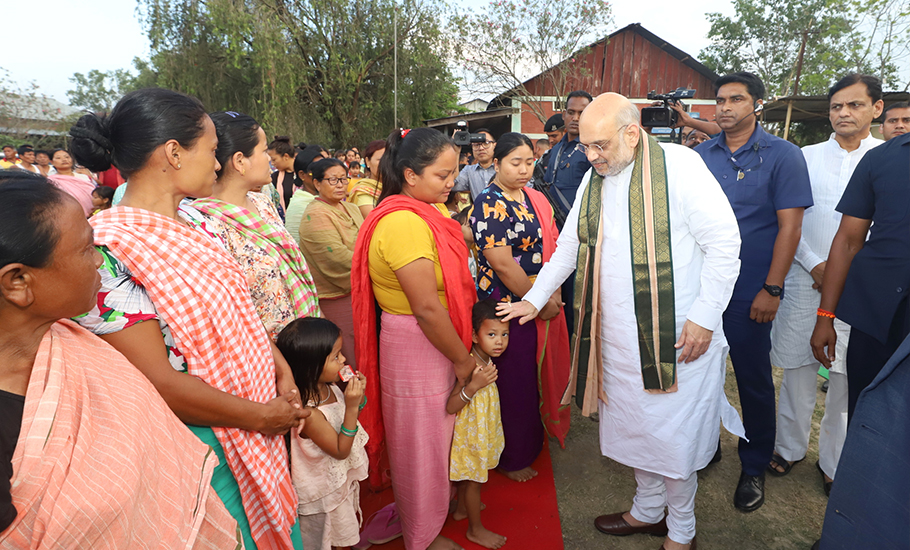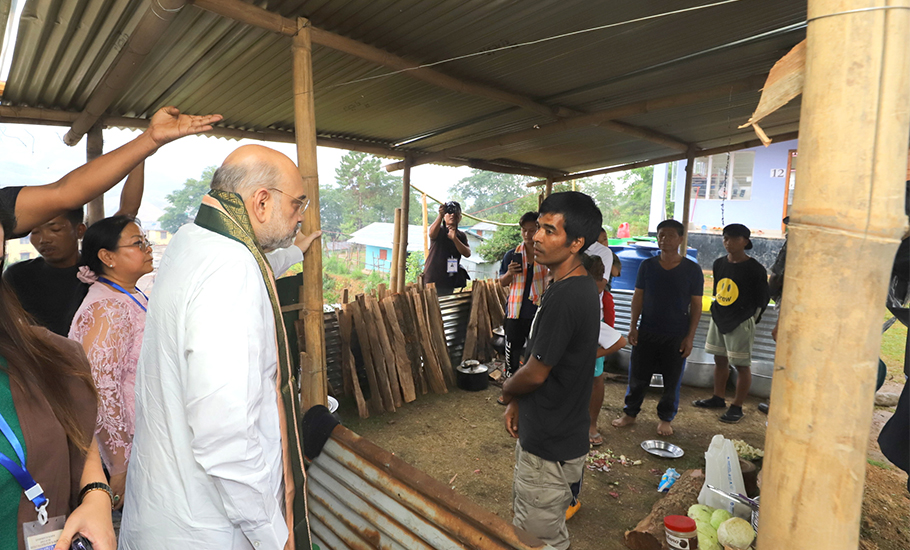
- Home
- India
- World
- Premium
- THE FEDERAL SPECIAL
- Analysis
- States
- Perspective
- Videos
- Sports
- Education
- Entertainment
- Elections
- Features
- Health
- Business
- Series
- In memoriam: Sheikh Mujibur Rahman
- Bishnoi's Men
- NEET TANGLE
- Economy Series
- Earth Day
- Kashmir’s Frozen Turbulence
- India@75
- The legend of Ramjanmabhoomi
- Liberalisation@30
- How to tame a dragon
- Celebrating biodiversity
- Farm Matters
- 50 days of solitude
- Bringing Migrants Home
- Budget 2020
- Jharkhand Votes
- The Federal Investigates
- The Federal Impact
- Vanishing Sand
- Gandhi @ 150
- Andhra Today
- Field report
- Operation Gulmarg
- Pandemic @1 Mn in India
- The Federal Year-End
- The Zero Year
- Science
- Brand studio
- Newsletter
- Elections 2024
- Events
- Home
- IndiaIndia
- World
- Analysis
- StatesStates
- PerspectivePerspective
- VideosVideos
- Sports
- Education
- Entertainment
- ElectionsElections
- Features
- Health
- BusinessBusiness
- Premium
- Loading...
Premium - Events

Logged out of Manipur: How young professionals are manoeuvring around internet ban

Until May 4, Maya Sinha (name changed) would start her work as early as 5.30 am for an Australian education company from her home in the far east state of Manipur. After wrapping up by 3 pm, she would leave for her second job which would start around 4 pm. Juggling between the two jobs was never easy for Maya, but it was never as hard as it has been since internet services were shut in...
Until May 4, Maya Sinha (name changed) would start her work as early as 5.30 am for an Australian education company from her home in the far east state of Manipur. After wrapping up by 3 pm, she would leave for her second job which would start around 4 pm. Juggling between the two jobs was never easy for Maya, but it was never as hard as it has been since internet services were shut in the state.
The internet ban in Manipur was first imposed on May 3, after widespread violence broke out following clashes between Kukis and Meiteis in the state.
According to the Manipur state department, the ban will prevent “spread of disinformation and false rumours, through various social media platforms such as Whatsapp, Facebook, Instagram, Twitter etc.”
“There is apprehension that some anti-social elements might use social media extensively for transmission of images, hate speech and hate video messages inciting the passions of the public, which might have serious repercussions for the law-and-order situation in the state of Manipur,” the government order on the ban said.

Over the last 1.5 months, Manipur has been in a state of violent turmoil with around 114 people dead, houses torched, thousands displaced from their homes and forced to live in army camps or are fleeing the state to save lives and livelihoods.
On Tuesday night, nine people were killed in incidents of firing and arson in Aigejang village in Manipur’s Kangpokpi district. Less than 24 hours later, Kangpokpi MLA and state cabinet minister Nemcha Kipgen’s official quarters was set on fire in Imphal.
This is reportedly the highest toll in a single incident in the state, after initial large-scale clashes from May 3 to 5. The second major wave of violence has primarily been in the form of arson and shootings in areas between the Kuki-dominated hills and the Meitei-dominated valley.
While the internet ban has clearly failed to control the violence, it has thrown life out of gear for many working professionals. The ban has also made it difficult for people to carry out digital transactions. As banks have remained shut for most part of the violence and ATMs have run dry, people have been asking friends and relatives in other states to transfer money for EMIs, fees and such needs.
After over two weeks of internet shutdown and no respite in sight, Maya took a flight to Kolkata as she had to return to her first job. “They cannot give me leave for an indefinite period. After two weeks, the company reached out and asked if I could find an alternative solution to access the internet. With my sister living in Kolkata, this was my only solution.”
In Kolkata, Maya wasn’t only going to resume work for the Australian company. Before flying out, she took up multiple errands from her relatives and colleagues stuck in a violence-hit Manipur. “My aunt had to send money to her grandson studying abroad. But she couldn’t as all the services are down. She gave me cash and I transferred the money to him digitally from Kolkata.”
She added that a colleague who hasn’t been able to deposit money in his bank asked her to do it in Kolkata. “His EMIs get deducted every month, and he needs to deposit money in the account. There aren’t enough deposit ATMs in Imphal or any other part of Manipur, even those that exist have not been working since the violence started.”
With the Manipur government making provisions for internet access in an institute which can be used for work purposes, Maya flew back to Imphal last week, hoping for things to improve.
Manipur’s Department of Information Technology set up a temporary Internet Facilitation Centre at NIELIT Campus at Akampat in coordination with National Institute of Electronics & Information Technology, Imphal. But the internet can be accessed only during working hours and is available during the curfew relaxation periods.
So, not everyone has chosen to return given the uncertainty and no end to violence.
A peace committee announced on June 1 by Union Home Minister Amit Shah, as part of a slew of measures to bring down tensions between the warring Meitei and Kuki communities, hit a wall on Monday after prominent civil society organisations from both sides refused to be a part of the process.
And so many professionals are still choosing to stay in other cities.
Prem, an IT professional, who has been working remotely from Imphal, flew out on May 7 as he had ongoing projects in the company with a tight deadline.
“My wife and children are still in Imphal and I am staying with a friend in Kolkata. I couldn’t even book my ticket. My friend booked and sent me the PNR number via SMS which I showed at the airport.”
Prem has no idea when he can return to Manipur and get to be with his family but he is relieved that he has a friend who he can stay with in Kolkata. Not everyone is as lucky. “I booked a ticket for a friend who flew out and is staying in Guwahati, but in a hotel, which is proving very costly for him. If he wants to save his job, he can’t go back to Manipur till internet services are restored. Even flights are now so expensive.”
Prem’s midnight flight from Imphal to Guwahati cost him Rs 11,000. With Guwahati and Kolkata being the closest major cities, many professionals like Prem and Maya have chosen to work from these cities.
Another IT professional Krishna Kumar (name changed) flew out two days after the internet was shut. “I chose to be in Kolkata, because if my office wants me to be in Bengaluru for clientele meetings, it will be easy to leave from here.”
Requesting anonymity, he said, he rented a one-bedroom apartment in Kolkata and is sharing it with a friend who also had to leave Manipur to be able to work.
“We are spending Rs 15,000 on rent. Additionally, we had to buy things for the kitchen, other essentials and enable the internet. My wife and six-month-old baby are still in Manipur and I am not able to be there because I also need to work.”
“If the internet is shut for a month, how am I supposed to work? That’s the primary requirement,” he adds.
For over a month now, Krishna has not seen his child or wife. “They can’t access video calls. So, I only talk over the phone.”
Professionals like Prem or Krishna, like many others across India, started working remotely from their hometown Manipur after Covid pandemic hit in 2020, when corporate offices, schools, colleges closed and almost every job was being done online.
According to global digital rights group Access Now and the #KeepItOn coalition, globally, 187 internet shutdowns across 35 countries were recorded in 2022. Of this, India implemented at least 84 shutdowns in 2022, the maximum for any country in a given year.
Today, a number of services and jobs are dependent on the internet. From fintech payments, delivery jobs, freelancers working for global companies or IT professionals are entirely reliable on the internet while working remotely.

Commenting on the plight of the gig workers in the state, Shaik Salauddin, national general secretary, Indian Federation Of App Based Transport Workers, told The Federal, “Thousands of gig and platform workers are facing social, economic, and financial crisis in Manipur. This class of workers are daily wage earners dependent on the internet. Its shutdown disrupts their jobs. In such a situation, the state must take cognisance of the hardships being faced by gig and platform workers. You must take care of the loss of earnings of these workers.”
Vidya Sagapam flew out of Imphal on May 6 as she was going to start an internship. She and her friends, who run a youth organisation called ‘Girl Up Manipur’, have been raising donations while being outside of the state.
“We have till date raised close to Rs 1 lakh. And most of these donations are from other states and countries,” said Sagapam.
The team of girls raised the donations to buy essentials like sanitary pads, medical kits and medicines for everyday health issues. The organisation’s treasurer, who is still in Imphal, visits the bank each time to withdraw money and buy these products for the ones in need.
Over the past month, items such as rice, potato, onion, eggs, LPG cylinders and petrol have been sold at much higher rates than the ones fixed by the government.
“We bought potatoes for Rs 80 per kg. Prices of all these essentials skyrocketed during the crisis. When we are in this crisis, everyone is busy capitalising on it. Be it the airlines or the middle-men,” Krishna told The Federal.
The median salary in Manipur is around Rs 31,300. Salaries range from a paltry sum of Rs 7,930 (lowest average) to over Rs 1 lakh (highest average).
The bigger worry for everyone, however, is that there is no sign of the conflict ending anytime soon. Violence has not stopped despite Union Home Minister Shah’s visit and attempts to bring the warring parties to the dialogue table.
